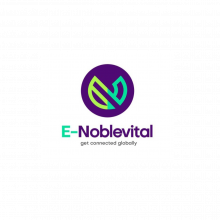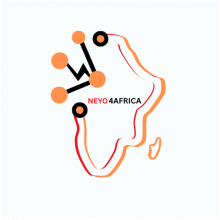
There are 38 Companies in Nigeria
that provide Hosting and Cloud Services!
Nigeria’s ICT sector contributed 19.78% to the country’s GDP in 2024. The telecommunications segment accounts for the vast majority of this, at around $7.6 billion. Other important contributors are broadcasting, data center services, cloud, IT, and BPO. Nigeria’s combination of relatively stable governance, strategic location, and young and innovative population has made it an attractive destination for multinational companies.
Discover Top IT Companies in Nigeria specialized in Hosting and Cloud and other related services. Find the best IT service providers for your projects.
Entrepreneurs often struggle to differentiate between cloud and hosted services, which may seem similar but differ in processes. Understanding these differences can help choose the right for your business. Pick the right home for your website involves considering technical aspects, reliability, cost, and customer support and other factors.
There are more than 330,000 web hosting providers all around the world, and this number is expected to grow as the Internet expands. Even with the fierce competition, new providers continue to enter the market. At the same time, data reveals that approximately 60% of all corporate data is now stored in the cloud. It has also witnessed a 10% increase compared to the previous year, 2021.
Handpicked companies • No obligation to hire • 100% risk-free
Featured Companies in Nigeria
This month, the following Hosting and Cloud companies managed to provide an outstanding service and support. It's worth taking a look.
Xpertech Solutions is one of the leading ICT and renewable energy conglomerate providing professional ICT and renewable energy services.
An Innovative IT service provider specialized in Software Development, Blockchain Development, Product Design, Artificial Intelligence, and Training.
Website Design and Digital Services Solution Provider in Abuja, Ibadan, Lagos and across Nigeria with the latest in demand Technologies.
Explore Top Hosting and Cloud Companies in Nigeria
we deliver innovative tech solutions that drive online growth for businesses across Africa, Europe, Asia, Oceania, and America.
Services:
The leading information technology company in Lagos, Nigeria. We provide all kinds of IT Services to businesses of all sizes.
We are a leading consulting and Training firm with very deep understanding of our customers' needs and we pride in the lasting solutions we provide.
Vsasf Nig Ltd (Vsasf Tech) is a computer software and IT service provider company. We offer ICT Courses to individuals and organizations in Nigeria.
Tuplea ICT Concepts, a leading digital solutions agency in Ibadan, offers friendly ICT training online and onsite in web, software, design, and more.
Best website design & development company in Nigeria
Collaborate | Innovate | Create
We provide exceptional IT and support services that enable businesses to achieve their goals, improve efficiency, and stay ahead of the competition.
OmoolaEx is a Nigerian IT consulting firm helping businesses navigate digital transformation through Strategic IT guidance & trusted implementation.
Skillsquared INC is a premier digital development company, specializing in website & mobile app development, CRM solutions, and digital marketing.
Driving innovation and growth with cutting-edge digital solutions.
Building digital solutions that help business grow.
Surfclick Innovations Limited is a technology solutions provider, dedicated to empowering businesses with cutting-edge digital solutions.
Empowering Your Digital Future
Premier tech partner in sub-Saharan Africa, delivering quality solutions across CPG, Oil & Gas, Manufacturing, and more with proven expertise.
Empowering Enterprises with Innovative IT Solutions
Transforming Africa's Digital Future by making technology accessible to all, we evolved into a comprehensive digital solutions provider.
We offer the best in Digital Advertising, Traditional Advertising, Brands Activation Business Consultancy.
Computer training center where you learn tech skills like Digital Marketing, Web Design, UI/UX Design, Data Analytics and Software Engineering.
- 1
- 2
Filter Hosting and Cloud Companies in Nigeria by Cities
Find the right tech company near you or from a specific city. Some of the best companies might be located in smaller cities.
Find more Hosting and Cloud companies around the world
TechBehemoths is the world's most advanced and user-friendly platform to match IT Companies with real clients without hustle.
The ICT Industry in Nigeria : 2025 Report
Nigeria’s ICT sector contributed 19.78% to the country’s GDP in 2024. The telecommunications segment accounts for the vast majority of this, at around $7.6 billion. Other important contributors are broadcasting, data center services, cloud, IT, and BPO.
Nigeria’s combination of relatively stable governance, strategic location, and young and innovative population has made it an attractive destination for multinational companies. Several notable firms, such as Oracle, IBM, Microsoft, Cisco, HP, and SAP, have offices in Nairobi, and some have based their entire African operations from these offices.
Why You Should Work With Nigerian IT Companies
Digital service providers in the cloud and BPO markets are primarily involved in the provision, rather than the development, of services, whereas Nigerian firms are more prevalent in the fintech and e-commerce markets. The physical technology required for the delivery of digital services is typically imported, and it is not clear that Nigeria could produce these products more efficiently.
A key strength in the digital services market is the acceptance of mobile services. Any consumer solution entering the market would have to be mobile-compatible. Mobile healthcare services are expected to grow particularly rapidly as the sophistication of these offerings increases.
In addition, the CEO of Toniceli considers that one of the competitive advantages Nigerian IT companies have compared to those established in neighboring countries is the challenging conditions. Here in Nigeria, we're used to working in challenging and stressful environments. This gives us grit, especially when faced with challenging projects. It's just a part of our nature to face challenges headlong and not to back down.
What to Pay Attention to When Working With Nigerian IT Companies and Web Agencies
On the consumer side, it is vital that any proposed digital service offering be mobile-compatible due to the prevalence of mobile usage in Nigeria. Furthermore, smartphone penetration in the region is steadily increasing, thus increasing the sophistication of viable digital service offerings.
Given the acceptance of fintech by the Nigerian population, a possible route to entry in the consumer market is to acquire one of the many smaller fintech firms in the industry. This would resolve some of the primary barriers to entry, most specifically bureaucratic red tape and a lack of local knowledge.
On the corporate side, the most effective route to entry is likely through partnerships with smaller local resellers. This model is already popular in the Nigerian market. A key differentiating feature here will be how well the service adapts to the Nigerian market.
How Reliable Are Nigerian-based IT Companies?
Considered to be one of the biggest African IT hubs, Nigerian web agencies and IT companies compete only with Ethiopian ones in terms of reliability. As many foreign companies have already invested and thus developed the local IT infrastructure and industry overall, Nigerian IT companies find it easier than other neighboring countries to enter the global market and provide their services at accessible prices.
How Does the Nigerian IT Industry Relate to the Neighboring Countries?
Nigeria is actively trying to establish itself as a key ICT hub in the East African region. The country appears to be making good progress in this regard, helped by having a strong connectivity infrastructure and a young, innovative population. Despite this, the country currently faces considerable political uncertainty, and issues surrounding the transparency of tenders remain a major barrier to growth.
Although Nigeria’s score in the Global Innovation Index 2024 is not high in absolute terms, it ranks 113th in the world. This supports the conjecture that businesses, government, and consumers will be receptive to new technologies, as ICT has already had a substantial impact on the Nigerian economy.
The Business Environment in Nigeria
The CEO of Toniceli - a leading Nigerian IT company, Oluwayomi Olabanjo, states that the Nigerian business environment is growing rapidly. Most business environments are still very much clustered in the city of Lagos, but over the years, there's been an expansion in economic clusters in other cities. There had been challenges in infrastructure, policies, power, and access to professional training and education. However, things have been getting better over time, especially with the coalition of private and public enterprises addressing these challenges headlong. I would say the biggest factor we've had working for us in the Nigerian market is the availability of youthful talent and the increasing flow of foreign and local capital into the market.
What Makes Nigeria Attractive for International IT Companies?
Oluwayomi Olabanjo mentions on this topic that what makes it attractive is the abundant supply of youthful talent. However, unstable government policies, infrastructure, and power shortages are challenges, making it unattractive for international IT companies.
Yet, the Nigerian Communications Commission had been doing quite a lot with the startup bill and also with the establishment of public-private incubator programs within the country. I really do believe they should be given credit for this.
Lagos, Ibadan - Best Cities for Doing IT business in Nigeria
Lagos, because it has always been the economic hub of the country, hence the IT industry has found it quite easier to experience growth in that space.
Ibadan due to the fact that it is a fast-growing economic hub and also, and there's less capital expense in setting up and running a company here. - mentioned Oluwayomi Olabanjo.
What is Hosting and Cloud and what are its benefits for your projects?
Entrepreneurs often struggle to differentiate between cloud and hosted services, which may seem similar but differ in processes. Understanding these differences can help choose the right for your business. Pick the right home for your website involves considering technical aspects, reliability, cost, and customer support and other factors.
There are more than 330,000 web hosting providers all around the world, and this number is expected to grow as the Internet expands. Even with the fierce competition, new providers continue to enter the market.
At the same time, data reveals that approximately 60% of all corporate data is now stored in the cloud. It has also witnessed a 10% increase compared to the previous year, 2021.
Cloud Services
Cloud services are computing services provided by third-party hosts through the internet and on-demand. They allow customers to access and utilize remote computing resources effortlessly. There are three main categories of cloud: Software as a service (SaaS), Platform as a service (PaaS), Infrastructure as a service (IaaS).
Benefits of Using Cloud-Based Services
Cloud services offer several advantages that are not available with hosted solutions:
-
IT Optimization: With cloud services, the provider is responsible for building and maintaining all the hardware, so your IT department doesn't have to manage servers or install and update software on individual computers. Additionally, the provider is responsible for ensuring security and resolving any problems that might come up.
-
Budget-friendly approach: Cloud services offer a cost-efficient approach where you only pay for what you use. There is no need to invest in hardware or purchase software licences that may end up being unused by your team.
-
Business system integration: To integrate various third-party cloud solutions, you can streamline workflows and enhance team collaboration and productivity. For instance integrating your cloud communications platform with a CRM. Doing so ensures employees have access to customer information before they answer incoming calls and automatically logs all calls into the CRM.
-
Increase agility and scalability: Cloud services let you make changes in just a few clicks, whether you need to shift workflows, add new features and functionality, or change the number of users.
-
Support AI, predictive analytics, and IoT: With your data in the cloud, you can easily apply these advanced technologies to improve efficiency, gain new insights, and future-proof your business.
-
Support remote workforces: The workforce can access cloud services anytime, anywhere, using any device, with just an internet connection and login credentials.
Hosting Services
Hosted services, much like cloud-based solutions, are managed by a third-party provider and accessed through the internet. With hosted solutions, the provider owns and maintains physical servers in a private location rather than relying on a public cloud. This allows the service to be accessed online without the need for installing hardware or software. Users typically access it through a virtual private network or remote desktop.
Benefits of Hosting Services
Hosted services offer some of the same advantages as cloud solution, including:
-
Remote access and the ability to integrate with certain other cloud solutions. Because the software and hardware are maintained by the provider, there's also less for IT to manage than with traditional computing solutions (but typically more than with cloud solutions).
-
Offers greater customization options compared to cloud services, depending on the setup and service agreement.
-
Provide more control over security protocols, which is particularly beneficial for companies operating in highly regulated industries.
To Sum Up
Cloud services are a more cost-effective option compared to hosting services. They are easier to set up, manage, and maintain. Although hosting services offer more control, they require additional IT work and often come at a higher price. However, it's important to analyze your specific business requirements before deciding on a hosting type. At the moment Techehemoths has almost 800 Hosting & Cloud service providers.
Take a look at their profiles and feel free to contact them, the smart filters will also help you, Moreover, you can submit your project and our team will hand-pick and send you the best matching service providers, and you will get free quotes in about 1-hour. Also, if you want to learn more about cloud and hosting services, check out our blog for additional information.























